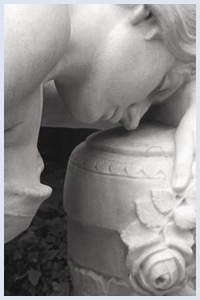What Do I Do When Someone Dies?
The loss of a friend or loved one can be a very stressful time with many people needing to be notified in the first few days.
In addition to the immediate tasks you need to attend to, such as arranging the funeral, there is a lot of paperwork to be dealt with and official documents which need to be completed over the next few weeks. |
Let Us help
One of the duties you may have to undertake is applying for Probate. This can often be a complex and extremely time consuming process and needs attending to at a time when you may not feel able to perform this task.
Our experienced team have a sympathetic and patient approach when dealing with bereaved relatives and will happily arrange a visit to discuss your requirements in the comfort of your own home.
Unlike solicitors , banks and many other legal companies who charge an hourly rate, Wills and Wealth Management provide a Fixed Fee Probate Service which is quoted in advance of any work being undertaken. This means a considerable saving on the fees you would typically need to pay a high street solicitor or bank.
As part of our Probate Service our team can also offer you independent advice on the Will itself and may, under certain circumstances, recommend that a Deed of Variation be set up in order to vary the Will. This process would effectively ensure that the beneficiaries of the Will receive as much of their inheritance as possible, protecting it from attack by Care, further Inheritance Tax, Divorce, Creditors and Bankruptcy. |
 |
Who can deal with the deceased person's estate?
Usually a close relative like a spouse, child or parent will have the legal right to sort out the estate of the person who has died. In order to be able to administer someone's estate you normally need to apply to the Probate Registry for a 'Grant of Letters of Administration'.
You will also need to contact relatives and people close to the deceased for a full list of who to contact go to http://www.direct.gov.uk/ select Government Citizens and Rights – then Death and Bereavement and What to Do After A Death.
If the person who has died leaves a will
In this case one or more 'executors' may be named in the will to deal with the person's affairs after their death. The executor applies for a 'grant of probate' from a section of the court knows as the probate registry. The grant is a legal document which confirms that the executor has the authority to deal with the deceased person's assets (property, money and possessions). They can use it to show they have the right to access funds, sort out finances, and collect and share out the deceased person's assets as set out in the will.
|
 |
If the person who has died didn't leave a will
If there is no will, a close relative of the deceased can apply to the probate registry to deal with the estate. In this case they apply for a 'grant of letters of administration'. If the grant is given, they are known as 'administrators' of the estate. Like the grant of probate, the grant of letters of administration is a legal document which confirms the administrator's authority to deal with the deceased person's assets.
When someone dies without leaving a will, dealing with their estate can be complicated. It can also take a long time - months or even years in some very complex cases.
If someone dies without making a will, they are said to have died 'intestate'. If this happens, the law sets out who should deal with the deceased's affairs and who should inherit their estate (property, personal possessions and money). (This information covers England and Wales only.)
On receipt of the grant you become the 'administrator' of the estate. The grant provides proof to banks, building societies and other organisations that you have authority to access and distribute funds that were held in the deceased's name. The overall process is often referred to as 'obtaining probate', though technically this term applies where there was a will.
These grants appoint people known as “Personal Representatives “ to administer the deceased persons estate.
When a grant is needed
A grant is almost always needed when the person who dies leaves one or more of the following:
• £5,000
• stocks or shares
• certain insurance policies
• property or land held in their own name or as 'tenants in common'
In most cases above, the bank or relevant institution will need to see the grant before transferring control of the assets. However if the estate is small some organisations, such as insurance companies and building societies, may release the money to you at their discretion.)
When a grant may not be needed
If the deceased's estate is below £5,000, and doesn't contain any land, property or shares, then it may be possible to deal with it without obtaining a grant. Also, a grant might not be needed if the whole of the estate is held in joint names and passes automatically to the surviving joint owner.
In some cases, for example, where the person who benefits is a child, the law states that more than one person must act as the administrator.
To establish whether the assets can be obtained without a grant, the executor or administrator would need to write to each institution informing them of the death and enclosing a photocopy of the death certificate (and will if there is one).
The personal representative won't be granted probate until some or all of any Inheritance Tax that is due on the estate has been paid.
Applies to England and Wales.
If the person who died lived in Scotland you must apply for a 'grant of confirmation'. |